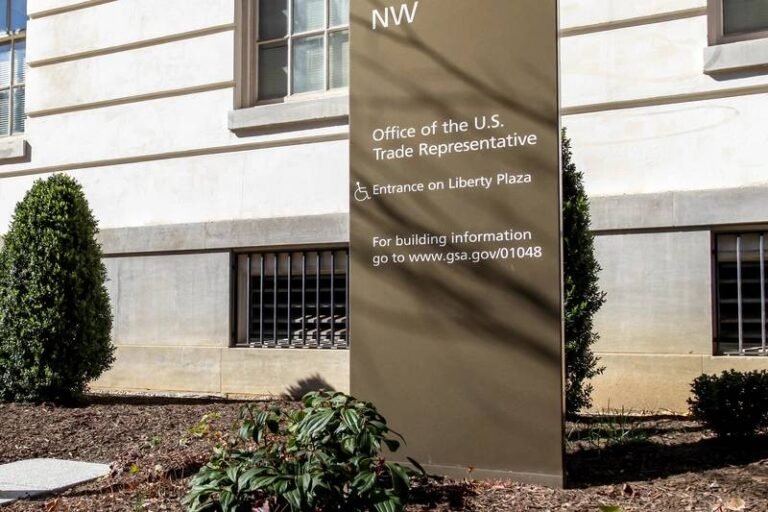The U.S. Trade Office to Levy Port Fees on China-Linked Ships
The U.S. Trade office will this week announce its plan for levying port fees on China-linked ships as part of President Donald Trump‘s effort to revive domestic shipbuilding and counter China’s dominance on the high seas.
The proposed fees on China-built ships could hit $1.5 million per U.S. port call. Few vessels would be exempt, making U.S. export prices unattractive and foisting billions of dollars in annual import costs on American consumers.
Expected Announcement and Revisions
The final plan is widely expected to be announced as early as April 17, the one-year anniversary of the launch of USTR’s investigation into China’s maritime activities. In January, the agency concluded that China uses unfair policies and practices to dominate global shipping.
U.S. Trade Representative Jamieson Greer last week said the agency would not apply all aspects of its original fee proposal, which outlined a range of options to penalize China, including million-dollar port fees for ships with ties to the country.
Jamieson said USTR would announce remedies in the middle of this month.
Agency officials in a meeting last month told Great Lakes shipping groups that the issue would be wrapped up in a year and one day from the start of the USTR investigation, said Justin Mann, a Chamber of Marine Commerce government affairs representative, who attended that meeting.
USTR had no immediate comment on the details of its plans.
Industry Response and Concerns
The apparent revision followed a tsunami of public and private opposition from the global maritime industry, including domestic port and vessel operators as well as U.S. exporters and importers of various goods.
During a congressional hearing Greer said the fees may not be cumulative and would be designed to avoid economic harm. Implementation could also come as late as November as a result of the feedback received from industry representatives.
Industry executives had warned that U.S. taxpayers, workers, and even the U.S. shipbuilders and owners could be harmed if the plan was adopted without adjustments, because nearly all of the existing global shipping fleet would be subject to the huge fees.
Concerns for Ports and Infrastructure
Small-to-medium ports are concerned that ships will stop calling on them if USTR assesses the fee at each U.S. port visit. This could lead to overwhelming larger ports while starving secondary ports that have received significant public investment in infrastructure improvements.
Representatives from various ports, including the Port of San Diego, expressed concerns about the potential impact on their operations and infrastructure investments. Industry groups like the Shipbuilders Council of America and the American Association of Port Authorities have also voiced their opposition to the proposed fees.
Conclusion
In conclusion, the U.S. Trade Office’s plan to levy port fees on China-linked ships has sparked significant debate and opposition from various sectors of the maritime industry. The final announcement and implementation of the fees are expected to have far-reaching implications for U.S. ports, exporters, importers, and the broader shipping industry.
It remains to be seen how the U.S. government will address the concerns raised by industry stakeholders and whether adjustments will be made to the proposed fee structure to mitigate potential economic harm.

